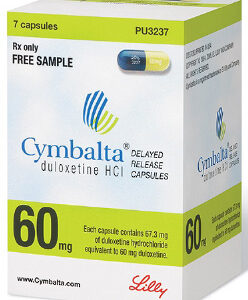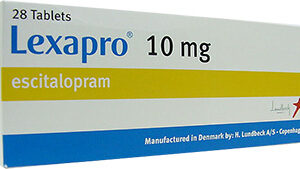Sinequan, also known as doxepin, is a medication that belongs to the class of tricyclic antidepressants. It is primarily used to treat symptoms of depression and anxiety disorders. Sinequan works by affecting the balance of certain natural chemicals in the brain, which helps improve mood, sleep, appetite, and energy levels.
This medication is available in the form of oral capsules and is taken by mouth. It is usually prescribed to be taken once daily at bedtime, but the dosage may vary depending on the individual’s condition and response to treatment.
It is important to note that Sinequan is only available with a prescription from a healthcare professional. This article aims to provide essential information about Sinequan, including its contraindications, side effects, dosing guidelines, interactions with other drugs, and answers to frequently asked questions.
“When Not to Take Sinequan”
Sinequan is contraindicated in certain situations and medical conditions. It is important to discuss your medical history and all current medications with your doctor before starting Sinequan. Avoid taking Sinequan if you have:
- A known allergy or hypersensitivity to doxepin or any other inactive ingredients in the medication.
- Used a monoamine oxidase inhibitor (MAOI) within the past 14 days, as it may result in potentially dangerous drug interactions.
- A history of acute narrow-angle glaucoma.
- Experienced recent myocardial infarction (heart attack) or are in the acute recovery phase.
- Used Sinequan within the past two weeks.
Additionally, inform your doctor if you have any other medical conditions, such as liver or kidney disease, epilepsy, urinary retention, or a history of seizures. Your healthcare provider will assess the potential risks and benefits of Sinequan in your specific situation.
“Sinequan Reactions”
Sinequan may cause a variety of side effects. Some common side effects include:
- Drowsiness and dizziness
- Dry mouth
- Constipation
- Blurred vision
- Trouble urinating
Inform your doctor if any of these side effects become persistent or worsen over time. In rare cases, Sinequan may cause more serious side effects, such as:
- Irregular heartbeat or palpitations
- Chest pain
- Mental or mood changes (e.g., agitation, confusion)
- Tremors or seizures
- Allergic reactions (e.g., rash, itching, swelling)
If you experience any severe or persistent side effects, immediately seek medical attention. Your doctor may need to adjust your dosage or switch you to a different medication.
“Dosing Information”
The dosing guidelines for Sinequan may differ depending on the individual and their specific condition. It is crucial to follow your doctor’s instructions and never exceed the prescribed dosage. Generally, Sinequan should be taken once daily at bedtime.
If you accidentally miss a dose, take it as soon as you remember. However, if it is already close to the time for your next scheduled dose, skip the missed dose and resume your regular dosing schedule. Do not double the dose to make up for the missed one.
In the case of an overdose, seek immediate medical attention. Overdosing on Sinequan can lead to severe symptoms, such as severe drowsiness, confusion, hallucinations, and breathing difficulties. It is essential to store Sinequan securely and out of reach from children and pets.
| General Dosing Guidelines for Sinequan | |
|---|---|
| Adults: | 25-300 mg per day, taken in a single dose or divided into smaller doses |
| Elderly: | Start with a lower dosage and gradually increase as required |
| Children: | The safety and effectiveness of Sinequan in children have not been established. The use of this medication in pediatric patients is generally not recommended. |
“Sinequan and Concomitant Drugs”
Sinequan may interact with other medications, resulting in potentially adverse effects or decreased effectiveness. It is crucial to inform your doctor about all prescription, non-prescription, and herbal products you are currently taking. Some drugs that may interact with Sinequan include:
- Monoamine oxidase inhibitors (MAOIs)
- Antidepressants, including selective serotonin reuptake inhibitors (SSRIs)
- Sedatives, tranquilizers, or sleeping pills
- Medications for high blood pressure or heart problems
- Antihistamines
- Anti-seizure medications
- Alcohol or drugs causing central nervous system depression
Your doctor will carefully assess the potential interactions and adjust your dosage or recommend alternative medications if necessary. Do not start or stop any medication without consulting your healthcare provider.
“Your Questions Answered”
-
Q: Can Sinequan be used during pregnancy?
A: Sinequan should only be used during pregnancy if the potential benefits outweigh the potential risks to the fetus. It is important to consult your doctor before using this medication during pregnancy. -
Q: Can Sinequan be used while breastfeeding?
A: Sinequan may pass into breast milk and could have undesirable effects on the nursing infant. Consult your doctor before breastfeeding while using this medication. -
Q: How long does it take for Sinequan to start working?
A: The onset of Sinequan’s therapeutic effects may vary among individuals. Some individuals may start experiencing improvements in symptoms within a few days, while others may take several weeks. It is important to continue taking the medication as prescribed and discuss any concerns with your doctor. -
Q: Can alcohol be consumed while taking Sinequan?
A: Alcohol should be avoided while taking Sinequan, as it may enhance the sedative effects and increase the risk of side effects. -
Q: Can Sinequan be abruptly stopped?
A: Sinequan should not be abruptly discontinued without consulting your doctor. Your doctor will provide appropriate instructions for tapering off the medication to prevent withdrawal symptoms.






Reviews
There are no reviews yet.